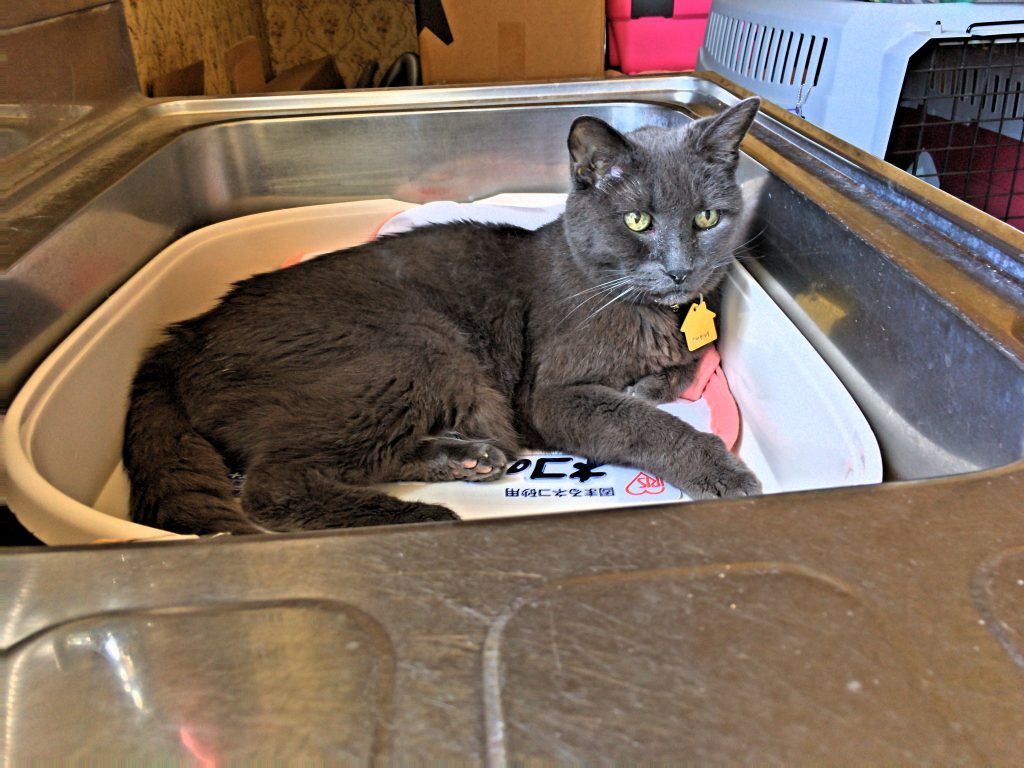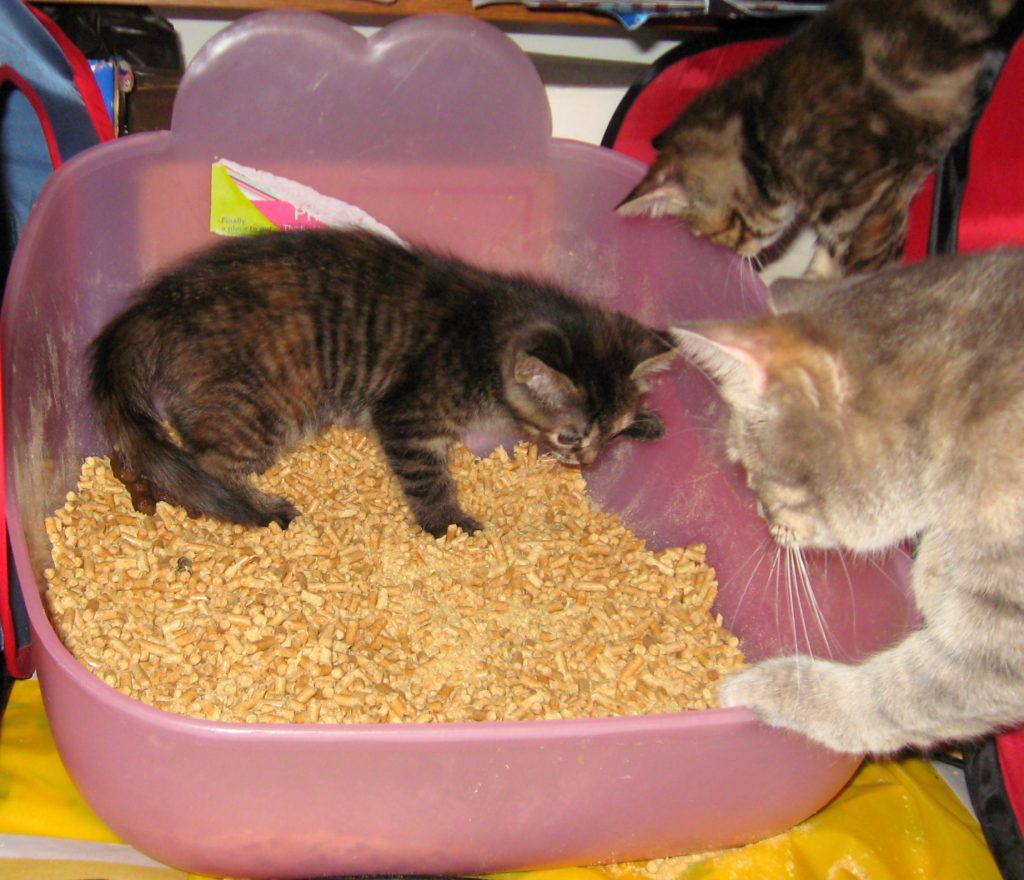If you have just brought home a new cat, congratulations! It can be a really exciting time. However, one of the most common questions that new cat owners have is whether it is normal for their pet not to pee or poo for 24 hours.
In this article, we will answer that question and provide some tips on how to help your new cat adjust to its new home.
Key Takeaway
- It’s normal for new cats to not pee or poo for up to 24 hours due to stress and adjustment to a new environment, but if this behavior continues, it could indicate a health issue and you should consult with a vet.
- A healthy cat typically cannot go longer than 48 hours without peeing or pooping, and any longer could indicate a potentially serious health issue.
Is It Normal For New Cats Not To Pee or Poo For 24 Hours?

Yes, it is perfectly normal for new cats not to pee or poo for 24 hours! Your new cat is probably just feeling a bit overwhelmed and stressed from all the changes in its life. Give them some time to adjust and they should start using the litter box like usual. In the meantime, make sure they have plenty of fresh water to drink.
If you’ve just brought home a new kitten, you might be wondering why they’re not peeing or pooping. Don’t worry, this is normal behavior for a new cat.
They’re simply adjusting to their new surroundings and getting used to their litter box. Give them some time and they’ll start using the litter box like usual. If 24 hours have passed and your kitten still hasn’t used the litter box, then you should contact your veterinarian for advice.
Cats are creatures of habit but they also like to explore their surroundings. When they first come home, they’re trying to figure out where they are and what everything is. This is why it’s important to give them some time to adjust before you start worrying about them not using the litter box.
There are a few things you can do to help your new cat feel comfortable enough to use the litter box. First, make sure the box is in a quiet place where your cat won’t be disturbed.
Second, fill the box with fresh, clean litter. Third, give your cat some time to get used to its new surroundings. Finally, if all else fails, consult your veterinarian for advice. With a little patience and understanding, you’ll soon have a happy and healthy kitty says PetForums.
Why Hasn’t My New Cat Peed Yet?

It’s normal for new cats to not pee or poo for up to 24 hours due to several factors such as stress, anxiety, unfamiliar surroundings, and possible health issues.
Newly Adopted Cats
When a cat is newly adopted, it may take some time for it to adjust to its new environment. This adjustment period can cause the cat to hold in its urine and feces for up to 24 hours.
Stress and Anxiety
Cats are sensitive animals and can easily become stressed or anxious, especially when faced with changes to their environment. This stress and anxiety can result in the cat holding in its urine and feces.
Unfamiliar Surroundings
If a cat is placed in an unfamiliar environment, it may feel uncomfortable or unsafe using the litter box. This discomfort can cause the cat to hold in its urine and feces until it feels safe.
Health Issues
In some cases, a cat may not pee or poo for 24 hours due to health issues. These could include urinary tract infections, constipation, or other digestive problems. If your cat continues to not pee or poo after 24 hours, it is important to consult with a vet to rule out any potential health issues.
How Long Can a Cat Go Without Peeing or Pooping
A cat can generally go without peeing or pooping for 24 to 48 hours, but if this period is exceeded, it could indicate a potential health issue.
Cats typically have the ability to hold their urine and feces for up to 24 to 48 hours. This is often seen in situations where they are faced with new environments, stress, or anxiety.
However, it’s important to note that this is not an ideal situation and can potentially lead to health issues if sustained for longer periods.
What to Do if Your Cat is Not Peeing or Pooping
If your cat is not peeing or pooping, it’s crucial to monitor their behavior closely and consult a vet immediately, as it might indicate serious health issues like urinary obstruction or infection.
Monitor Your Cat’s Behavior
If you notice that your cat is not urinating or defecating, start by observing their behavior. Are they showing signs of discomfort or distress, such as straining to urinate or defecate? Are they eating and drinking normally? Changes in behavior can provide important clues about what’s going on.
Check for Dehydration
Dehydration can cause constipation in cats, making it difficult for them to poop. You can check for dehydration by gently pinching the skin at the back of your cat’s neck. If it doesn’t spring back quickly, your cat might be dehydrated.
Look for Signs of Illness
Other signs of illness can include loss of appetite, lethargy, vomiting, or changes in water consumption. If your cat exhibits any of these symptoms along with not peeing or pooping, it could indicate a serious medical condition and you should contact a vet immediately.
Consult with a Vet
If your cat hasn’t peed or pooped for more than 48 hours, or if they’re showing signs of distress, it’s time to call the vet. They’ll be able to perform tests to determine whether there’s an underlying medical issue, such as a urinary tract infection or constipation, and prescribe the appropriate treatment.
Provide Proper Hydration and Nutrition
Ensure your cat has constant access to fresh water and is fed a balanced diet. Certain foods can help promote urinary and digestive health, so ask your vet for recommendations if necessary.
Preventing and Addressing Litter Box Issues
Preventing and addressing litter box issues involves a combination of keeping the litter box clean, choosing the right litter box for your cat, and addressing any behavioral issues that may be causing your cat to avoid using the box.
Keeping the Litter Box Clean
Cats are naturally clean animals and may avoid a dirty litter box. It’s important to scoop the litter box daily and change the litter completely on a regular basis, typically once a week. This helps to keep the box fresh and inviting for your cat.
Choosing the Right Litter Box
The size and style of the litter box can also impact your cat’s willingness to use it. The box should be large enough for your cat to comfortably turn around in.
Some cats prefer uncovered boxes, while others feel safer in a covered box. Experiment with different types and styles to see what your cat prefers.
Addressing Behavioral Issues
If your cat is avoiding the litter box, it could be due to a behavioral issue. Stress, anxiety, or changes in the household can cause a cat to stop using the litter box. In these cases, it can be helpful to consult with a vet or a pet behaviorist to identify the cause and develop a solution.
This could involve making changes to the environment, providing additional litter boxes, or using cat-friendly pheromones to help your cat feel more comfortable.
When to Seek Veterinary Assistance
You should seek veterinary assistance if your cat persistently lacks urination or defecation, shows signs of infection or illness, or experiences unexplained changes in litter box habits.
Persistent Lack of Urination or Defecation
If your cat hasn’t peed or pooped in more than 48 hours, it’s time to consult with a vet. This could be a sign of urinary obstruction or constipation, both of which can be serious if not treated promptly. Persistent lack of urination, especially, is a medical emergency that requires immediate attention.
Signs of Infection or Illness
Symptoms such as vomiting, loss of appetite, lethargy, blood in urine or stool, or changes in water consumption can indicate an infection or illness. If your cat exhibits any of these symptoms, you should contact a vet immediately. Early detection and treatment can help prevent more serious complications.
Unexplained Changes in Litter Box Habits
Sudden changes in your cat’s litter box habits, such as going outside the box, frequent attempts to urinate with little output, or straining to pee or poop, could be signs of a health issue. These changes can indicate problems like urinary tract infections, bladder stones, or behavioral issues. If you notice these changes, schedule a visit to the vet to get to the bottom of the issue.
FAQs
Q: How long can a cat go without pooping?
A: Cats can typically go up to 48 hours without pooping, but if your cat is consistently going longer than that, it may be a sign of constipation or other health issues.
Q: What should I do if my cat hasn’t peed or pooped in over 48 hours?
A: If your cat has not urinated or defecated in over 48 hours, it is important to consult a veterinary professional to rule out any potential health issues.
Q: Why would a cat not pee or poop?
A: Cats may not pee or poop due to stress, anxiety, environmental changes, constipation, or underlying medical conditions. It is important to monitor their behavior and consult a veterinarian if concerned.
Q: How can I help my cat if it is constipated?
A: To help relieve constipation in your cat, you can try increasing their water intake, adding fiber to their diet, providing them with regular exercise, or using a veterinarian-recommended laxative or stool softener.
Q: My cat prefers to pee or poop outside the litter box. What should I do?
A: If your cat is consistently peeing or pooping outside the litter box, it may be a behavioral or medical issue. Consult with a veterinarian to determine the underlying cause and find a solution.
Q: How often should a healthy cat pee or poop?
A: Healthy cats typically pee and poop at least once or twice a day. However, every cat is different, and some may go more or less frequently.
Q: What can cause a cat to not pee or poop for an extended period of time?
A: Several factors can cause a cat to not pee or poop for an extended period of time, including stress, urinary tract infections, blockages, pain, or obstructions. Consulting a veterinarian is recommended to determine the cause.
Q: How can I make my cat feel more comfortable using the litter box?
A: To make your cat feel more comfortable using the litter box, ensure it is in a quiet and easily accessible location, keep it clean, use the litter your cat prefers, and provide multiple litter boxes if you have more than one cat.
Conclusion and final thoughts
In conclusion, it is not unusual for new cats to not pee or poo for 24 hours. This behavior can be caused by stress and anxiety due to the change in environment.
However, if your cat continues to not urinate or defecate for more than 24 hours, it is important to consult with a veterinarian as this could be a sign of an underlying health issue.




